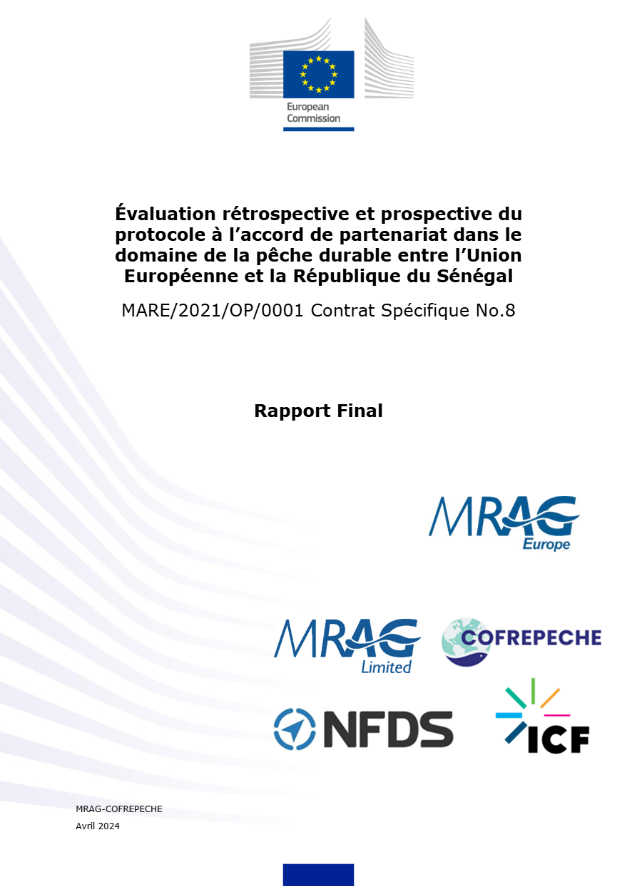
Actualités > Ex-post and ex-ante evaluation of the 2019-2024 Protocol to the Sustainable Fisheries Partnership Agreement (SFPA) between the European Union and the Republic of Senegal
Ex-post and ex-ante evaluation of the 2019-2024 Protocol to the Sustainable Fisheries Partnership Agreement (SFPA) between the European Union and the Republic of Senegal
COFREPECHE successfully completed, in April 2024, the ex-post and ex-ante evaluation of the 2019-2024 protocol of the Sustainable Fisheries Partnership Agreement (SFPA) between the European Union and the Republic of Senegal. The 2019-2024 Protocol for the implementation of this SFPA provides for access for up to 45 EU fishing vessels in exchange for an EU financial contribution of EUR 1,700,000 per year, including EUR 800,000 for access to the Senegalese fishing zone and EUR 900,000 per year to support the implementation of Senegal’s fisheries sector policy. As the current agreement is coming to an end, COFREPECHE has conducted an evaluation of the existing protocol as well as the possibilities and best conditions for potentially concluding a new protocol. This study, commissioned by the European Commission (DG MARE), had two objectives:
- The first was to provide the European Commission with an independent ex-post evaluation of the 2019-2024 protocol for the implementation of the SFPA between the EU and Senegal, focusing on the analysis of the criteria of effectiveness, efficiency, economy, relevance, acceptability, coherence, and added value of the intervention.
- The second was to conduct an ex-ante evaluation of this protocol by analyzing the different possible options within the framework of a possible renewal of the Protocol.
According to the current basic regulation of the Common Fisheries Policy (CFP), these ex-ante and ex-post evaluations must be carried out by the European Commission before signing a new protocol under the SFPA. The evaluation process took place between September 2023 and April 2024, under the supervision of DG MARE and in cooperation with Senegalese authorities. The methodology used was divided into three main stages: the analysis of available information, the consultation of stakeholders, and the formulation of responses to retrospective and prospective evaluation questions.
For more information, the final evaluation report is available via the following link:



